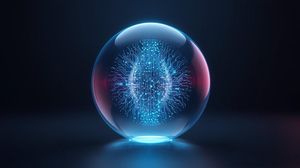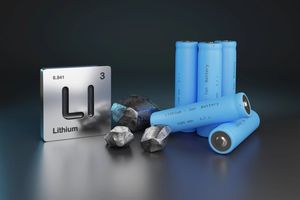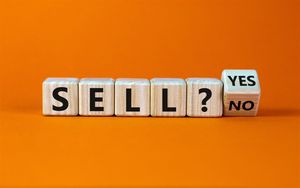Study demonstrates the Bio-RFID™ sensor can deliver stable, repeatable results in predicting blood glucose concentrations using the Dexcom G6® as a reference device
Know Labs, Inc. (NYSE American: KNW), an emerging developer of non-invasive medical diagnostic technology, today announced the results of its latest technical feasibility study titled, “Technical Feasibility of a Novel Sensor for Non-Invasive Blood Glucose Monitoring Compared to Dexcom G6®.” Know Labs is presenting these results today, May 5, at the American Association of Clinical Endocrinology (AACE) Annual Meeting in Seattle, WA.
From December 2022 through February 2023, Know Labs conducted a series of internal studies to validate the technical feasibility of its Bio-RFID™ sensor technology at quantifying blood glucose concentration (BGC) in five healthy participants, using the Dexcom G6® as a reference device. Bio-RFID is a novel platform technology using electromagnetic energy in the form of radio waves to non-invasively capture molecular signatures and convert them into physiologically meaningful information.
The purpose of this technical feasibility study was to demonstrate hardware and software infrastructure stability, and to collect additional data to determine the accuracy of the sensor at quantifying BGC in vivo non-invasively using radio frequency, by means of training a neural network (NN) model to predict readings of the Dexcom G6® as a proxy for BGC.
In the aggregate – across five individual participants, 46 tests and 92 samples, which collected 4.7 million data points per sample or roughly 430 million data points for all samples – the study resulted in a mean absolute relative difference (MARD) of 20.6% and performed with 46% of predictions within the U.S. Food and Drug Administration’s (FDA) recommended limit for accuracy for new blood glucose monitors.
“We have successfully completed our foundational studies, we have a stable sensor that delivers repeatable results, and we have developed software infrastructure to manage and interpret large, novel datasets,” said Steve Kent, Chief Product Officer at Know Labs. “As you increase sample size, it is expected that there are changes in accuracy, resulting from variability in testing conditions, biological diversity, and other factors. This is the goal of expanded data collection, and we will continue to share results as we collect more high resolution data, from more participants, across more testing scenarios.”
During the data collection period, participants placed their forearms on the Bio-RFID sensor and consumed liquid D-Glucose to simulate a glucose spike. Participants' BGC was monitored for three hours while readings from the Bio-RFID sensor and the Dexcom G6® were simultaneously logged. Data were collected on a continuous basis, using sweeps across the 500 MHz to 1500 MHz range at 0.1 MHz intervals, collecting values at 10,001 frequencies per sweep. Know Labs then used these data from the Bio-RFID sensor to train a NN model to predict BGC readings of the Dexcom G6® reference device.
“Today’s methods of testing BGC come with several disadvantages, from the pain of finger pricks and inserting probes for continuous monitors to the high cost and environmental waste these methods produce,” said Ron Erickson, CEO and Chairman at Know Labs. “This study demonstrates our progress toward getting the first FDA-cleared non-invasive glucose monitoring device in the hands of the nearly 40 million people living with diabetes in the U.S. We’ve achieved so much over the last several months. We’ve refined data collection methods and increased our participant population, with our dataset growing from 3 in our exploratory study to 92 in this study, a 30-fold increase in the sample size. To-date, we’ve collected 1.4 billion data points that are now being used to refine our glucose value prediction algorithm.”
This technical feasibility study is part of ongoing clinical research that Know Labs is conducting as the company prioritizes validation of the Bio-RFID technology. A Technical Report of the company's Proof of Concept (N=1) results is publicly available at www.knowlabs.co/research-and-validation.
The study abstract and AACE 2023 Annual Meeting Poster can be viewed at www.knowlabs.co.
About Know Labs, Inc.
Know Labs, Inc. is a public company whose shares trade on the NYSE American Exchange under the stock symbol “KNW.” The Company’s technology uses spectroscopy to direct electromagnetic energy through a substance or material to capture a unique molecular signature. The Company refers to its technology as Bio-RFID™. The Bio-RFID technology can be integrated into a variety of wearable, mobile or bench-top form factors. This patented and patent-pending technology makes it possible to effectively identify and monitor analytes that could only previously be performed by invasive and/or expensive and time-consuming lab-based tests. The first application of our Bio-RFID technology will be in a product marketed as a non-invasive glucose monitor. It will provide the user with real-time information on blood glucose levels. This product will require U.S. Food and Drug Administration clearance prior to its introduction to the market.
Safe Harbor Statement
This release contains statements that constitute forward-looking statements within the meaning of the Private Securities Litigation Reform Act of 1995 and Section 27A of the Securities Act of 1933, as amended, and Section 21E of the Securities Exchange Act of 1934, as amended. These statements appear in a number of places in this release and include all statements that are not statements of historical fact regarding the intent, belief or current expectations of Know Labs, Inc., its directors or its officers with respect to, among other things: (i) financing plans; (ii) trends affecting its financial condition or results of operations; (iii) growth strategy and operating strategy; and (iv) performance of products. You can identify these statements by the use of the words “may,” “will,” “could,” “should,” “would,” “plans,” “expects,” “anticipates,” “continue,” “estimate,” “project,” “intend,” “likely,” “forecast,” “probable,” “potential,” and similar expressions and variations thereof are intended to identify forward-looking statements. Investors are cautioned that any such forward-looking statements are not guarantees of future performance and involve risks and uncertainties, many of which are beyond Know Labs, Inc.’s ability to control, and actual results may differ materially from those projected in the forward-looking statements as a result of various factors. These risks and uncertainties also include such additional risk factors as are discussed in the Company’s filings with the U.S. Securities and Exchange Commission, including its Annual Report on Form 10-K for the fiscal year ended September 30, 2022, Forms 10-Q and 8-K, and in other filings we make with the Securities and Exchange Commission from time to time. These documents are available on the SEC Filings section of the Investor Relations section of our website at www.knowlabs.co. The Company cautions readers not to place undue reliance upon any such forward-looking statements, which speak only as of the date made. The Company undertakes no obligation to update any forward-looking statement to reflect events or circumstances after the date on which such statement is made.
View source version on businesswire.com: https://www.businesswire.com/news/home/20230505005054/en/
Contacts
For Know Labs Media Inquiries Contact:
Matter Health
Laura Bastardi
Knowlabs@matternow.com
Ph. (603) 494-6667
Know Labs, Inc. Contact:
Jordyn Hujar
jordyn@knowlabs.co
Ph. (206) 629-6414






